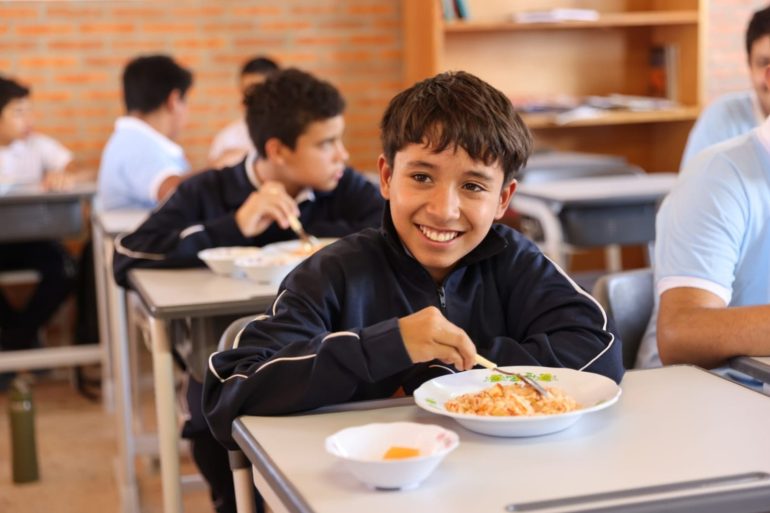Marking the first anniversary of the Zero Hunger programme, Paraguay’s Social Development Minister Tadeo Rojas stated that 254 million meals were provided to 1,050,000 children across 7,030 educational institutions. According to the official report, the meals reached all educational institutions in Paraguay’s 263 districts.
The Zero Hunger (Hambre Cero) programme aims to provide healthy meals to students, while simultaneously promoting economic and social development, providing breakfast, lunch, and snacks to students from pre-kindergarten to the 9th grade, with high school students in 22 prioritised districts also included.
Zero Hunger Programme’s economic impact
The meals were distributed during the period from August 2024 to August 2025. The Zero Hunger programme started started last year in 90 priority districts and was extended to all 263 districts Paraguay about six months ago. The programme, described by Minister Rojas as “the largest social programme in Paraguay’s history,” has seen a state investment of US$375 million. The estimated cost per child is approximately Gs. 350,000 (approximately US$46) per month.
Additionally, according to government numbers, the procurement of supplies for school meals generated US$30 million for family farming and US$15 million for micro, small, and medium-sized enterprises, while creating nearly 60,000 jobs nationwide, including roles for cooks, assistants, and drivers. The report also highlighted a significant rise in school retention rates: from 77% to 94% for six-year-olds, 59% to 77% for nine-year-olds, and 40% to 56% for 12-year-olds.
Social and educational outcomes
Paraguay’s Education Minister Luis Fernando Ramírez emphasised the programme’s broader impact, stating: “This programme has a multifaceted social and economic effect, but most importantly, it addresses a key injustice: hunger hinders learning. We are ensuring our children can eat and learn.”
He also added: “This will be the generation that transforms its ability to learn and develop. This is the start of the zero hunger generation.”


